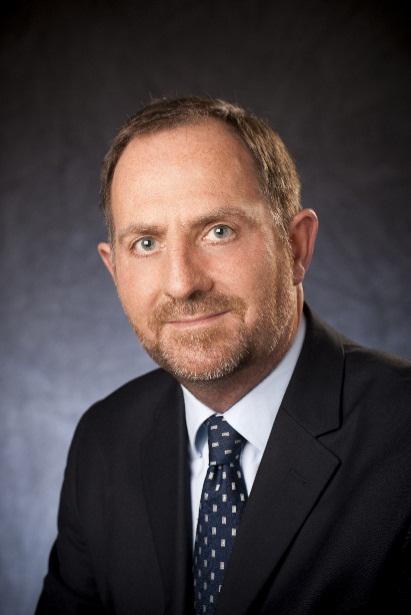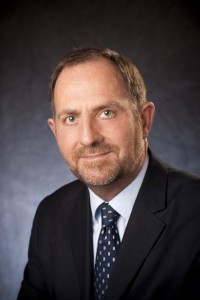
 Peter White is Chief Operating Officer for the World Business Council for Sustainable Development (WBCSD). He is one of the keynote speakers at the Smart City Event 2015 in Amsterdam. In this interview we talked about his view on smarter cities and the recent projects of the WBCSD.
Peter White is Chief Operating Officer for the World Business Council for Sustainable Development (WBCSD). He is one of the keynote speakers at the Smart City Event 2015 in Amsterdam. In this interview we talked about his view on smarter cities and the recent projects of the WBCSD.
What is your view on smart cities?
The vision of the WBCSD is that in 2050 about 70% of all the people on the planet will live in cities – that is over 6 billion people. They all have to live with a good quality of life and within the limits of our planet. So if we don’t face the challenges of sustainability in cities, we are wasting our time. Those challenges have to be approached and solved at the scale of cities.
Cities are, in many ways, a very efficient way of living. If you design and organize cities well, we can have -as a species- the most efficient footprint. The individual footprint in cities can be smaller than living outside cities. Some people see cities as a problem, but in my opinion they can also be a great opportunity, because you can give people a better quality of life and also reduce the impact on the environment.
The focus should not only be on the new cities that are built in the world, but also on helping existing cities to develop in a more sustainable and smart way. All the indicators of quality of life and work in cities should be revalued and at the same time have less environmental impact.
This can only be done by an holistic approach, and through open collaboration between all the stakeholders: governments, enterprises and users. “Smart” often refers to ICT, but that is not the main goal: improving the quality of life is. ICT is great as a means, but not as an end. The quality of life is mostly delivered by designing cities and services for the daily lives of people. For those solutions we need new and innovative models of collaboration.
What are your current projects at WBCSD?
There are several, as we find a lot of opportunities for cities and the private sector to work together. For instance in our Urban Infrastructure Initiatives (UII). This program ran in ten cities across the world and brought together 14 leading global companies. The main goal was to help cities and private companies work together in the early planning stage of a city’s sustainability vision. They shared their visions about sustainability and worked to identify practical solutions for those cities.
Another program that is currently running is concerned with sustainable mobility. In six cities around the world, city experts and WBCSD member companies have worked together to develop indicators of sustainable mobility, and a toolkit of solutions. Now the cities are looking to implement these solutions. Cities involved in this program are Lisbon (Portugal), Hamburg (Germany), Campinas (Brazil), Indore (India), Chengdu (China) and Bangkok (Thailand). Central to this program was working together on sustainable urban mobility, and this involved many private sector actors, car manufacturers, rail operators, infrastructure providers, and ICT providers.
What will be your next big project?
In our new Zero Emission Cities program, cities and companies are joining forces to develop roadmaps for the transition of their energy systems towards zero carbon emissions. If we can change those systems from fossil energy to renewable energy; we have a world to win. In the short term this will cost money, but there are (financial) benefits in the longer term. I view this holisticly. If cities can realize zero emissions, they will make an important step in reducing the overall footprint of urban areas. The central question is how we can come up with a roadmap to make this happen? We’re just kicking off this program, with Amsterdam and Birmingham as pilot cities.
What’s most important when it comes to smart cities?
There is no magic bullet in terms of technology. It is more about how you put the variety of technologies together for smart solutions. This is true for mobility and transport, but also for buildings and energy. There is a lot of technology available, but the question is more how residents are using it. And if they do, how can you scale it up? So process is one of the most important insights.
In the case of smart buildings the problem is often that the incentives for investors are different from those of the users. The system doesn’t fit the problem. The benefits from investments are not enjoyed by the investors. And if you live in a building that isn’t your property, you also don’t make the investment. So in this case it is about redesigning the business-models, in such ways that the incentive supports the changes desired.
The issue is not that we don’t have the technology, the issue is the lack of the feeling of urgency and the incentive to invest. Many sustainable solutions cost more in the short time, but the benefits are greater in the long term, especially if you can apply at a larger scale. We have a plethora of pilots – what we need now are strategies to take the pilots to scale.

What is, in your opinion, necessary to design those ‘new systems’?
In many cases it is about raising awareness of the solutions, by sharing best practices and the benefits for end-users and owners. Many the pilots don’t have a proper business and finance model. It is key to get those right. And it’s essential to promote that collaboration between public institutions, private partners and consumers in an early stage. The partners have to work on a business model that is good for companies (profit that you can invest in innovation), but is also sustainable.
If you want behavioral change from consumers, you have to position it as a way to improve their quality of life. It must not be a trade-off in terms of performance or value, or the majority of consumers will not accept it. In the end the consumer doesn’t want to pay more, even if the product or service is greener. That may work for 10-15% of consumers, but not for the mass. Communication and marketing is essential to achieve that. When partners work at a finance and business model they have to keep the awareness and benefits for the consumers in mind. Without that you have no chance.

Do you have some tips for the coming years of smart thinking?
All activities in cities are becoming more ICT driven. That’s an ongoing and unstoppable process. The question is can we make cities really smart? Not from a technological point of view, but from the perspective of the quality of life. Can we make cities better for the daily life of their inhabitants? To make that happen co-design from al the actors – users, governments and suppliers – is essential.
The new solution area is ‘big data’. Controlling heating, lighting and other functions by apps and smart devices is a new area currently taking off. That also generates a lot of data, which we can use to improve cities. We are at the start of this process, and the question arises: how can we make the raw data useful to the daily life of inhabitants, and also raise awareness for the decision-makers of cities? That way they can manage the city to be more energy efficient, reduce its overall footprint, and make it a better place to live for all.
about Peter White
Dr. Peter White joined the World Business Council for Sustainable Development (WBCSD) as Chief Operating Officer in 2013. Previously, he spent over 20 years developing the sustainability program at Procter & Gamble, the world’s largest consumer goods company. In his last 7 years with the company, Peter was P&G’s Director for Global Sustainability, creator and chair of the Sustainability Leadership Council and a key architect of the company’s long term sustainability vision and 2020 goals.
Peter is also a Visiting Professor at Newcastle University’s Institute of Sustainability. He has held teaching and research positions at the Universities of Oxford, California (Berkeley) and Arizona, and taught in Nigeria with the UK development charity Voluntary Service Overseas. A biologist at heart and by training, Peter holds a doctorate in Chemical Ecology from Oxford University, and Masters degrees in Zoology (Oxford) and Applied Hydrobiology (London).
You can read the full report on the vision of the WBCSD here (available in more than 10 languages).
More about Urban Infrastructure Initiatives UII.




Leave a reply